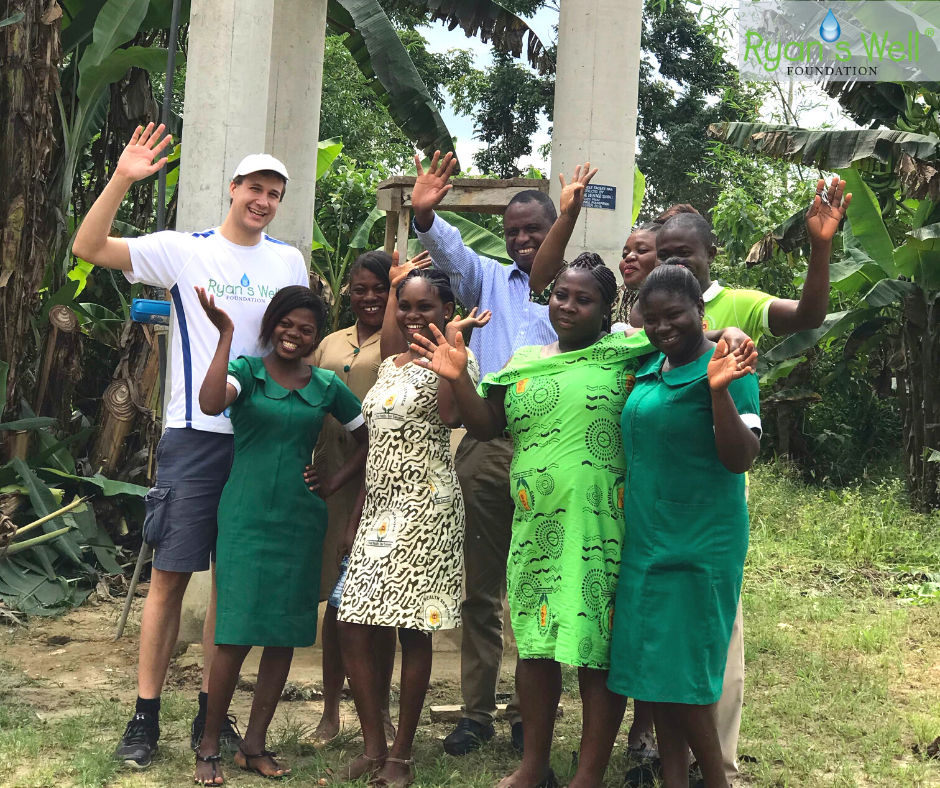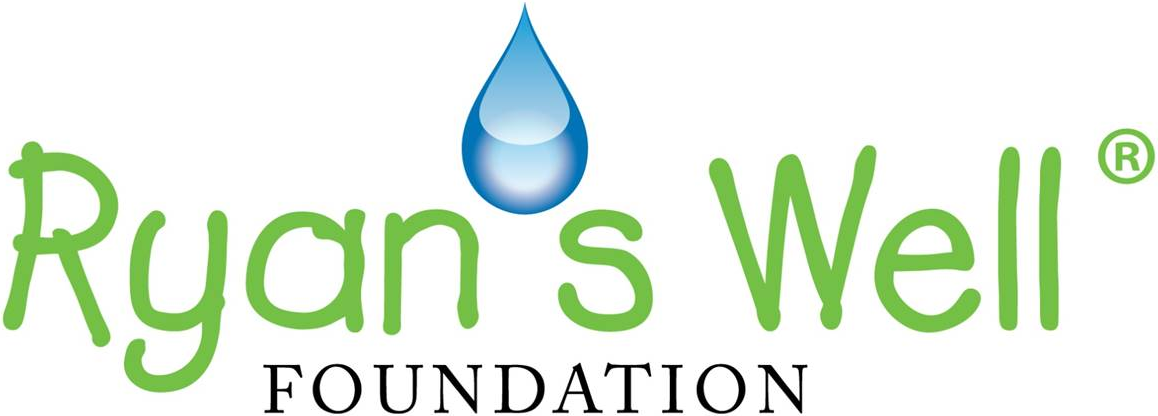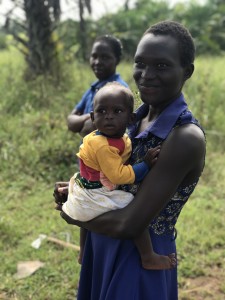
Location: Ashanti region of Southwest Ghana
Partner: DONA (Dawn of a New Age)
Project Fund Code: GHDONA2022
Project Timeline: April, 2021 – January, 2022
Expected Beneficiaries: 68,171
About the Project
This year’s project in the Ashanti region of Ghana will connect another five health centres to a safe water source, which directly benefits, not only the communities in which the health centres are located, but many surrounding communities as well – this year’s project will provide clean water to more than 68,171 people! Typically, each centre serves between 5,000-10,000 people per year, but this figure was collected before COVID-19.
Community members, teachers, students, and staff at the health clinics will also receive WASH (water, sanitation, and hygiene) training, to ensure the effective usage of their well. This training educates beneficiaries on the importance of personal hygiene, such as the critical need to wash hands with soap, which will reduce the spread of diseases such as diarrhoea, typhoid, cholera, and COVID-19.
Water Committees (WATSANs) and School Health Coordinators will be established within the communities to ensure future responsible management and maintenance of these water projects. These community leaders provide the level of ownership needed to ensure the sustainability of these water projects, and the self-sufficiency of these rural communities; these committees have proven to yield more sustainable projects, and lead to self-sufficient communities and water sources for many years to come.
What do the funds support?
- Drilling 11 new deep boreholes.
- 8 overhead holding tanks (for 5 health centres and 3 schools).
- Piping and washing sinks for 5 health centres.
- Training Needs Assessment (TNA) for WATSANS, caretakers and mechanics.
- Management Training for 8 WATSANs and 3 School Health Coordinators.
- Management Training for 11 Facility Management Committees (caretakers).
- Maintenance Training for local pump mechanics.
- WASH Training for 3 communities, 3 schools, and staff at 5 health centres.
- PPE (COVID-19 Risk Mitigation).
- Ongoing local monitoring and evaluation.
Why is this Project Important?
- In Ghana, more than five million people rely on surface water to meet their daily water needs, leaving them vulnerable to water-related illness and disease, such as malaria and typhoid.
- 22 million people in Ghana lack access to adequate sanitation services.
- Without water and sanitation services, many frequently suffer from dehydration, malnutrition, and diarrhea.
- Ghana’s government believes it is the health centres’ responsibility to fund the construction of clean water sources connected to their buildings.
- However, the majority of Ghanaian communities are small scale farmers, with little to no supplementary income, making financing these projects a nearly impossible feat.
- Without clean water, these health centres cannot serve pregnant women, leading to many more pregnancy-related health problems (such as miscarriages) in the area.
- These wells will service, not only the five health centres, but many surrounding communities.
- Illegal mining activities in the Ashanti region have led to widespread pollution of surface water (which many use as drinking water) with mercury.
About the Area
Ghana is located in West Africa, along the Ivory Coast. Two thirds of the country is covered by savannah, and is mostly flat plains with very few rivers. This terrain makes it very difficult for many people in Ghana to access safe drinking water, and 22 million Ghanaians lack adequate sanitation services (such as a toilet or handwashing station). Without these basic services, people in Ghana frequently suffer from dehydration, malnutrition, and diarrhea (the leading cause of death in the developing world).
The Ashanti region is known as “the kingdom of gold,” and was heavily affected by illegal mining activities, known as “Galamsey,” which has left the majority of surface water in the area polluted with mercury, and much of the infrastructure (roads, buildings, water projects, etc.) destroyed. Because the need is great in this area, Ryan’s Well and our local partner, DONA (Dawn of a New Age), will drill and install sixteen deep wells this year.
In Ghana, more than five million people rely on surface water to meet their daily water needs, leaving them vulnerable to water-related illness and disease, such as malaria and typhoid. The risk of contracting illness in Ghana, and around the world, has increased in recent months, as millions are navigating the COVID-19 pandemic with the added challenge of living without access to safe water. Now, more than ever, access to safe water is critical to the health and well-being of families in Ghana.
The rural Ashanti region, in particular, was heavily affected by COVID-19, and still has the second highest number of confirmed cases in Ghana (most outbreaks are in the main city – the Greater Accra region). For the reasons listed above, Ryan’s Well Foundation, along with our local partner DONA, will continue our work in the Ashanti region of Southwest Ghana, to provide more than 68,171 people with access to safe water, sanitation services, and WASH (Water, Sanitation, and Hygiene) education training in 2021-2022.
Safe Water Coverage and Population in the Areas in which we are working in Ghana (as of 2019):
Adansi North District – Population 63,461 – Safe water coverage 67.23% (this means that over 67% of the population has access to clean water)
Adansi South District – Population 144,471 – 52.85%
Amansie Central District – Population 147,043 – 72.39%
Amansie West District – Population 88,248 – 57.48%
Atwima Nwabiagya Municipal – Population 104,958 – 77.11%
Bekwai Municipal – Population 162,367 – 75.07%
Obuasi Municipal – Population 240,537 – 30.76%
![]()
Every effort is made to designate your funds as requested; however, if the specified project has become fully funded or unforeseen circumstances delay its start, we may allocate your donation to another important project.

